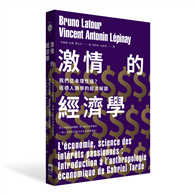Fernando Pessoa (1888-1935) is the quintessential philosophical outsider. Affiliated to no institution, and associated with no traditional school, in his prose fiction and poetry, Pessoa invented a new philosophy of the human subject, arguing that imagination is key to human flourishing and human self-enrichment. Each of us, he claimed, can use our powers of imagination to "pluralise ourselves;" that is to say, to live, simultaneously and in sequence, as a plurality of distinct subjects. Calling these artefact minds "heteronyms", Pessoan synthetic selves are new ways poetically to experience the world.
In this study of the philosophical thought of Pessoa, philosopher Jonardon Ganeri highlights connections between Pessoa with earlier philosophical poets, from Keats to Shakespeare and from Coleridge to Whitman. Ganeri emphasises Pessoa’s originality in his theory of the human subject as a radical departure from the history of Christian or Islamic thought, highlighting affinities with ideas from works of philosophical fiction in classical India through an examination of Pessoa’s own engagement with Indian poetry and philosophy. Ganeri convincingly argues for the need to consider Pessoa’s writings as a philosopher, both on their own terms and as in deep conversation with the tradition of Indian thought.| FindBook |
有 1 項符合
Fernando Pessoa: Imagination and the Self的圖書 |
 |
Fernando Pessoa: Imagination and the Self 作者:Ganeri 出版社:Oxford University Press, USA 出版日期:2024-08-06 語言:英文 規格:精裝 / 176頁 / 普通級/ 初版 |
| 圖書館借閱 |
| 國家圖書館 | 全國圖書書目資訊網 | 國立公共資訊圖書館 | 電子書服務平台 | MetaCat 跨館整合查詢 |
| 臺北市立圖書館 | 新北市立圖書館 | 基隆市公共圖書館 | 桃園市立圖書館 | 新竹縣公共圖書館 |
| 苗栗縣立圖書館 | 臺中市立圖書館 | 彰化縣公共圖書館 | 南投縣文化局 | 雲林縣公共圖書館 |
| 嘉義縣圖書館 | 臺南市立圖書館 | 高雄市立圖書館 | 屏東縣公共圖書館 | 宜蘭縣公共圖書館 |
| 花蓮縣文化局 | 臺東縣文化處 |
|
|
圖書介紹 - 資料來源:博客來 評分:
圖書名稱:Fernando Pessoa: Imagination and the Self
內容簡介
作者簡介
Jonardon Ganeri is the Bimal. K. Matilal Distinguished Professor of Philosophy at the University of Toronto. His work draws on a variety of philosophical traditions to construct new positions in the philosophy of mind, metaphysics and epistemology. His books include The Self: Naturalism, Consciousness and the First-Person Stance (2010); Attention, Not Self (2017); The Concealed Art of the Soul (2012), Virtual Subjects, Fugitive Selves (2020), and Inwardness: An Outsider’s Guide (2021). He joined the Fellowship of the British Academy in 2015 and won the Infosys Prize in the Humanities the same year.
|











